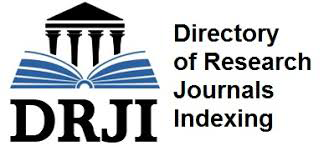







Comparison Of Social Skills Of 4-5 Years Old Children Who Receive High Scope Education and Who Do Not
Makbule Meziyet Arı, Buse Kerigan, Çağla Duran, Kevser Tuğba Çınar KarasuDepartment Of Child Development, İstanbul Gelişim University, İstanbul, TurkeyINTRODUCTION: The aim of this study is to compare the social skills of 4-5 year old children who have taken High Scope education and who have not.
METHODS: This research is quantitative research and has been carried out with the relational screening model. The study group was selected from a private pre-school education institution that provides High Scope Education to pre-school education in Istanbul in the spring semester of 2018-2019 and 80 children aged 4-5 who are attending a pre-school education institution affiliated with the MEB 2013 education curriculum, using a simple elective method. 29 and 31 children who did not receive High Scope Training constitute 60 (N: 60) children in total. As a data collection tool, the Preschool Social Skills Assessment Scale ASBED-Teacher Form, whose validity and reliability study was conducted by Ömeroğlu et al. (2014), was used to measure the social skill levels of children. The questions on the scale were filled in by preschool teachers.
RESULTS: According to the results of the study, children in the 4-5 age group who received High Scope Education had '' initial skills '', '' academic support skills '', '' friendship skills '', '' emotion management skills '' A statistically significant difference was found between the mean scores of the sub-dimensions
DISCUSSION AND CONCLUSION: It was found that children in the 4-5 age group who received High Scope Education had higher social skills than children who did not receive this education.
High Scope Eğitimi Alan ve Almayan 4-5 Yaş Grubu Çocukların Sosyal Becerilerinin Karşılaştırılması
Makbule Meziyet Arı, Buse Kerigan, Çağla Duran, Kevser Tuğba Çınar Karasuİstanbul Gelişim Üniversitesi Sağlık Bilimleri Fakültesi, Çocuk Gelişimi Ana Bilim Dalı, İstanbulGİRİŞ ve AMAÇ: Bu araştırmanın amacı High Scope eğitimi alan ve almayan 4-5 yaş grubu çocukların sosyal becerilerinin karşılaştırılmasıdır.
YÖNTEM ve GEREÇLER: Bu araştırma nicel bir araştırma olup ilişkisel tarama modeliyle gerçekleşmiştir. Çalışma grubunu 2018-2019 Bahar yarıyılında İstanbul ilinde bulunan okul öncesi eğitime High Scope Eğitimi veren özel bir okul öncesi eğitim kurumu ile bu eğitimi vermeyen MEB 2013 eğitim müfredatına bağlı okul öncesi eğitim kurumuna devam eden 4-5 yaşındaki 80 çocuk arasından basit seçkisel yöntem kullanılarak seçilen High Scope Eğitimi alan 29 ve almayan 31 çocuk, toplam 60 (N: 60) çocuk oluşturmaktadır. Veri toplama aracı olarak, çocukların sosyal beceri düzeylerini ölçmek için Ömeroğlu ve arkadaşları (2014) tarafından geçerlik ve güvenirlik çalışması yapılmış olan Okul Öncesi Sosyal Beceri Değerlendirme Ölçeği OSBED -Öğretmen Formu kullanılmıştır. Ölçekte yer alan sorular okul öncesi öğretmenleri tarafından doldurulmuştur.
BULGULAR: Araştırmanın sonucuna göre High Scope Eğitimi alan 4-5 yaş grubu çocukların bu eğitimi almayanlara çocuklara göre OSBED alt boyutları olan başlangıç becerileri, akademik destek becerileri, arkadaşlık becerileri, duygularını yönetme becerileri alt boyutları puan ortalamaları arasında istatistiksel olarak anlamlı bir farklılaşmaya rastlanmıştır.
TARTIŞMA ve SONUÇ: High Scope Eğitimi alan 4-5 yaş grubu çocukların bu eğitimi almayan çocuklara göre sosyal becerilerin daha yüksek olduğu bulunmuştur.
Manuscript Language: Turkish



